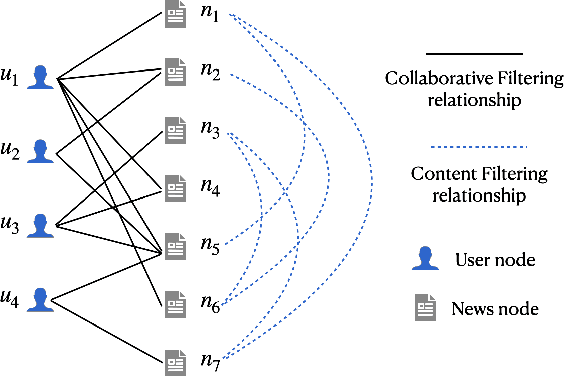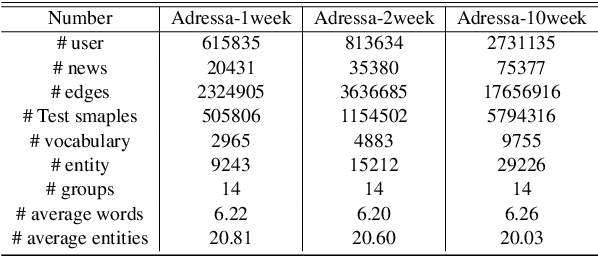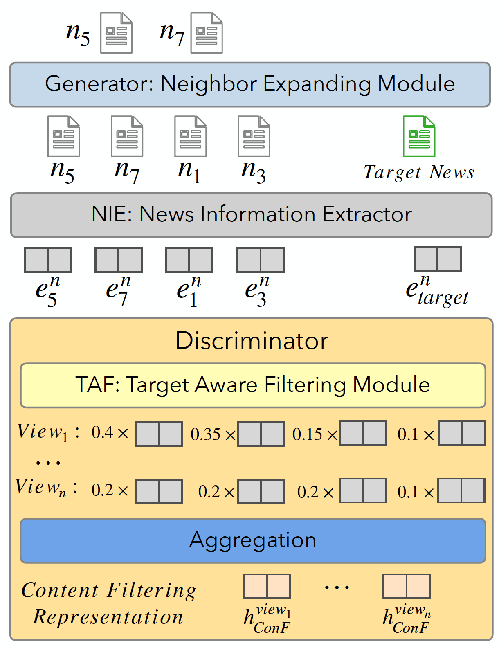Dandan Lin
FROG: Effective Friend Recommendation in Online Games via Modality-aware User Preferences
Apr 13, 2025



Abstract:Due to the convenience of mobile devices, the online games have become an important part for user entertainments in reality, creating a demand for friend recommendation in online games. However, none of existing approaches can effectively incorporate the multi-modal user features (\emph{e.g.}, images and texts) with the structural information in the friendship graph, due to the following limitations: (1) some of them ignore the high-order structural proximity between users, (2) some fail to learn the pairwise relevance between users at modality-specific level, and (3) some cannot capture both the local and global user preferences on different modalities. By addressing these issues, in this paper, we propose an end-to-end model \textsc{FROG} that better models the user preferences on potential friends. Comprehensive experiments on both offline evaluation and online deployment at \kw{Tencent} have demonstrated the superiority of \textsc{FROG} over existing approaches.
Content Filtering Enriched GNN Framework for News Recommendation
Oct 25, 2021



Abstract:Learning accurate users and news representations is critical for news recommendation. Despite great progress, existing methods seem to have a strong bias towards content representation or just capture collaborative filtering relationship. However, these approaches may suffer from the data sparsity problem (user-news interactive behavior sparsity problem) or maybe affected more by news (or user) with high popularity. In this paper, to address such limitations, we propose content filtering enriched GNN framework for news recommendation, ConFRec in short. It is compatible with existing GNN-based approaches for news recommendation and can capture both collaborative and content filtering information simultaneously. Comprehensive experiments are conducted to demonstrate the effectiveness of ConFRec over the state-of-the-art baseline models for news recommendation on real-world datasets for news recommendation.
 Add to Chrome
Add to Chrome Add to Firefox
Add to Firefox Add to Edge
Add to Edge